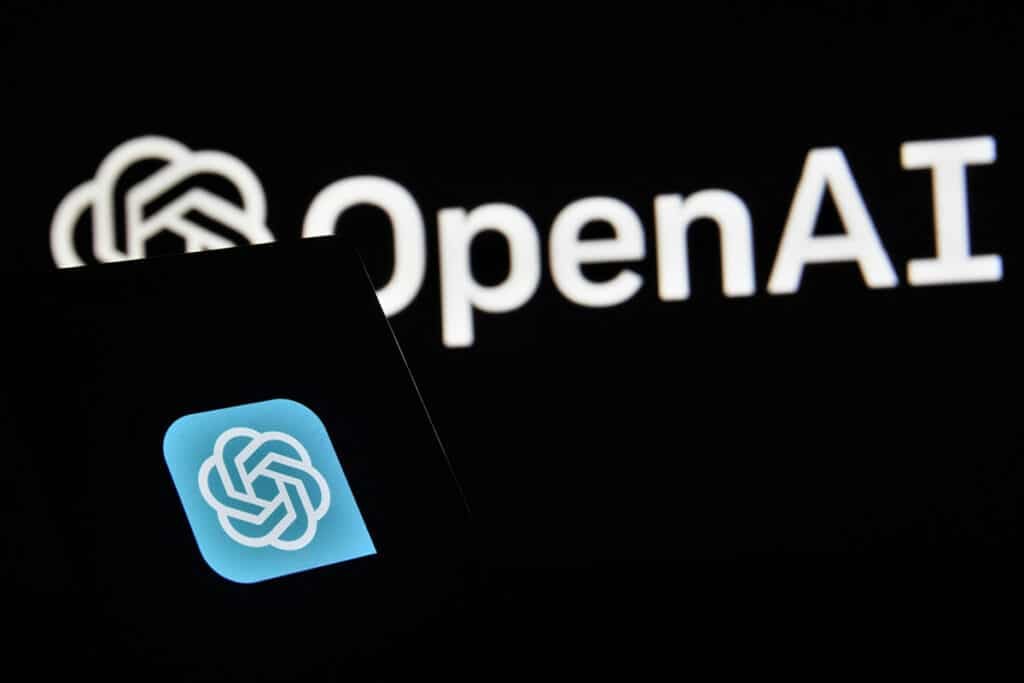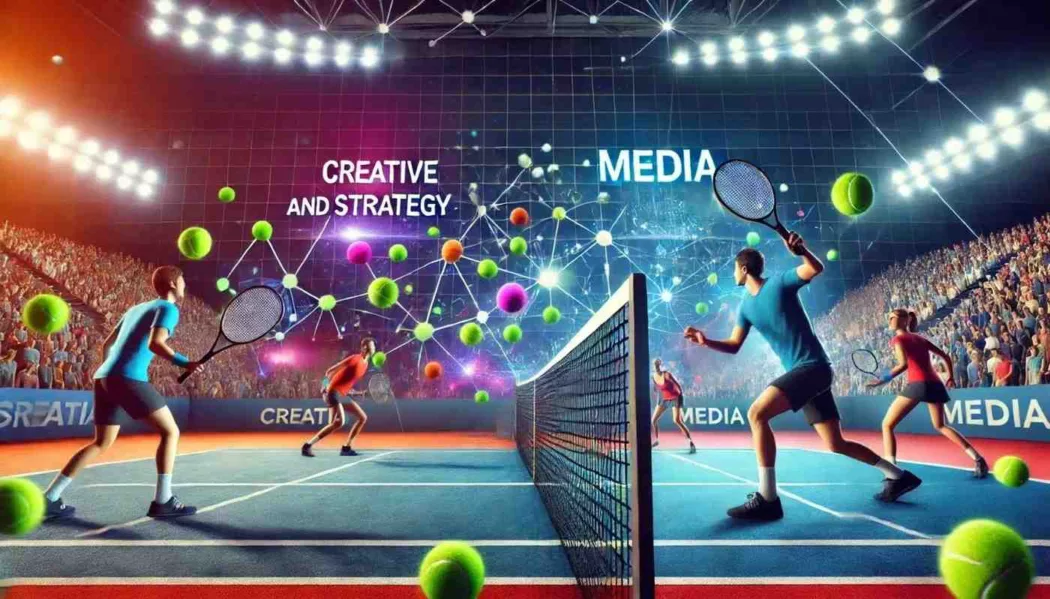AI: A New Era of Creation and Efficiency
05.04.2023Delve into ethical AI with a look at guidelines and governance proposals. Explore AI’s real-world impact and join the discussion on ethical AI.

Dive into the heart of ethical AI by looking at existing guidelines and governance proposals. Explore real-world applications of AI and join the conversation on how we can ensure AI serves humanity ethically and responsibly.
Embracing AI in Everyday Life to Enhance Our Collective Creativity and Potential

As technology progresses astoundingly, artificial intelligence (AI) has moved from the realm of science fiction to a rapidly growing force in the public sphere.
With widespread adoption and integration into our daily lives, AI has the potential to revolutionise the way we do things, just like the industrial and computer ages before it. Far from being a force that replaces us, AI is a tool to be wielded, creating a new era of creation and efficiency.
In his seminal work, “Being and Nothingness,” the French philosopher Jean-Paul Sartre posited that we are responsible for creating value and meaning in our lives.
This idea of embracing our ever-changing world and adapting to new technologies is essential to understanding the true potential of AI. As Photoshop revolutionised art, AI tools will transform various industries and applications.
The Impact of Adopting AI in the Modern World

According to a report by McKinsey, the adoption of Artificial Intelligence has led to a 14.9% increase in productivity across various sectors. Furthermore, a projection by Statista underscores the burgeoning potential of AI, with the market expected to reach a staggering $126 billion by 2025. These statistics elucidate the transformative impact of AI on our work and life.
The World Economic Forum predicts that labour productivity in developed countries could increase by up to 40% until 2035 due to AI, with high increases projected in Sweden (37%), the U.S. (35%), and Japan (34%).
Renowned AI expert Andrew Ng, known for his pivotal work in machine learning, emphasises the crucial role of AI in modern society, stating, “Just as electricity transformed almost everything 100 years ago, today I have a hard time thinking of an industry that I don’t think AI will transform in the next several years.”
This affirmation from a leading figure in the AI domain significantly underscores the pervasive influence AI is slated to have across diverse sectors.
A Fear of the Artificial

Despite the many benefits AI brings, it’s common for people to fear the unknown, especially when it comes to potential job displacement. Our roles and the value we contribute to society constantly evolve.
As Tesla and SpaceX CEO Elon Musk has noted, democratising AI is critical to advancing human progress with AI safely. Instead of fearing AI’s impact on our jobs, we should recognise that our society is anything but stationary and embrace the opportunities for growth and evolution that AI provides. Elon has also called for a pause on AI and implementing a governing global body to regulate its advancement before it is too far developed and out of control.
The past six months have seen a dramatic shift in the AI landscape, with the technology becoming increasingly integrated into our daily lives. This rapid adoption is likely to continue exponentially, making AI a seamless part of our existing software and hardware. This technology will not be confined to a single source; it will permeate every aspect of our lives.
As AI becomes increasingly ubiquitous, it won’t replace what we do or favour only the tech-literate or early adopters. Instead, it will enable all members of society who use technology to enhance their daily lives through AI-assisted functions.
These improvements will initially appear subtle, like how Microsoft Word evolved from pre-print to real-time spellcheck as you type. The next iteration of AI-driven tools may offer suggestions based on what you want to write rather than what you’ve already written.
For most people, adopting AI will be a moderate and almost indistinguishable transition, similar to the annual upgrades in features we expect from our devices and software. This incremental change is enough to keep us engaged and subscribed, but the sense of wonder and amazement is palpable for those captivated by the rapid progress we’ve seen in just six months.
The excitement surrounding AI today is reminiscent of the awe many felt upon seeing their first animated GIF on a simple HTML website. However, the future of AI promises far more than just being the file format of choice for memes.
As it advances, AI will become an indispensable tool for enhancing our everyday lives. From optimising our work productivity to personalising our entertainment, AI has the potential to revolutionise the way we interact with technology and each other. Moving into this new era, we must remember that AI does not replace human creativity and ingenuity. Instead, it is a tool that can augment our abilities and help us reach new heights in various fields.
Ethical Guidelines or Proposals for AI Governance
In artificial intelligence (AI), ensuring ethical AI governance is paramount. The European Union has made strides in crafting the Ethics Guidelines for Trustworthy AI. These guidelines serve as a beacon, directing the development of AI towards societal good and avoiding harm. They stress a human-centric approach, ensuring that AI serves individuals and the community.
Diverse AI organisations, too, propose frameworks for ethical AI governance. They advocate for clear regulations that ensure transparency, accountability, and privacy. These measures aim to foster trust among the public and ensure that the boon of AI doesn’t morph into a bane. A roadmap for responsible AI unfolds through these guidelines and proposals, striving for a future where AI and humanity thrive in harmony.
So What’s Next?

The advent of AI heralds a new era of innovation and efficiency, promising to redefine our approach to work, creativity, and problem-solving. When harnessed correctly, this transformative technology offers vast opportunities to enhance human life, driving us towards a future where AI acts as a catalyst for growth and innovation.
The Role of AI in Enhancing Human Creativity
AI as a Collaborative Tool
AI technology is emerging as a collaborative tool that augments human creativity, allowing us to achieve more than ever. By handling tedious and time-consuming tasks, AI frees individuals to focus on the creative aspects of their work, fostering an environment where innovation can flourish.
This synergy between human creativity and AI’s computational power is paving the way for groundbreaking advancements across various fields.
Fostering Innovation in the Arts and Sciences
The integration of AI in the arts and sciences opens up new avenues for innovation, enabling artists and scientists to explore complex concepts and create in previously unimaginable ways.
AI-driven tools transform how we approach creative processes, from composing music to designing complex scientific models, underscoring AI’s role as a powerful enabler of human creativity.
Ethical AI and Its Impact on Society
Navigating the Ethical Landscape of AI
As AI becomes more embedded in our lives, navigating its ethical implications becomes crucial. Developing AI technologies that are fair, transparent, and accountable is essential to ensure they serve the greater good. By prioritising ethical AI governance, we can mitigate risks and ensure that AI advancements benefit society.
Democratising AI Access
The democratisation of AI technology is vital to ensuring equitable access to its benefits. By making AI tools and resources available to a broader audience, we can level the playing field, allowing individuals and communities worldwide to harness AI’s potential. This inclusivity in AI access is crucial for fostering innovation and addressing global challenges collaboratively.
The Future of Human-Machine Collaboration
Building Synergistic Relationships
The future of AI hinges on building synergistic relationships between humans and machines. This collaboration will unlock new potentials in productivity and creativity, blending AI’s analytical capabilities with human intuition and emotional intelligence.
We can create a future where AI and humans work together to achieve common goals by fostering a partnership where each complements the other.
Preparing for a Collaborative Workforce
Preparing for a future where AI and humans collaborate closely requires a shift in mindset and education. Equipping individuals with the skills to work alongside AI, including critical thinking, empathy, and adaptability, will be crucial.
This preparation will ensure that the workforce is ready to embrace AI as a partner rather than a competitor, maximising the benefits of this technology for society.
Addressing AI’s Ethical Considerations
Ensuring AI’s Ethical Use
Ensuring the ethical use of AI is paramount as we venture further into this technological revolution. Establishing clear guidelines and frameworks that govern AI development and deployment will help maintain ethical standards.
These measures will protect against misuse and ensure that AI technologies are used responsibly, with human welfare as the primary concern.
Engaging in Global Dialogue
Engaging in a global dialogue about AI ethics is essential for developing a comprehensive understanding of its societal impacts. Collaboration among nations, industries, and communities will facilitate the exchange of ideas and best practices, promoting a unified approach to ethical AI.
This global conversation will help identify common challenges and opportunities, guiding the responsible advancement of AI technologies.
What This Means for the Rest of Us

The journey towards responsible and ethical AI is ongoing, full of promise and potential. By adhering to the proposed guidelines and continuously engaging in the dialogue surrounding AI ethics, we can ensure a future where technology serves humanity, not the other way around.
Your insight and involvement are crucial. Talk to us and share your thoughts on how we can further this dialogue and promote ethical AI practices. Together, let’s shape a future where AI acts as a force for good.
Frequently Asked Questions (FAQs)
What are the ethical principles guiding AI?
Ethical principles for AI encompass a range of guidelines to ensure the responsible use and governance of AI technologies. These principles often touch on transparency, accountability, human agency and oversight, technical robustness, privacy, and data governance.
Is there a global consensus on AI ethics?
While a universal consensus may not exist, many guidelines and recommendations are emerging worldwide. A notable initiative is UNESCO’s Recommendation on the Ethics of AI, adopted by 193 countries, setting a global normative framework for ethical AI governance.
How are organisations navigating AI ethics?
Organisations are adopting various approaches to navigate AI ethics. Standard methods include setting up governance structures like external advisory boards or internal review committees to monitor and manage AI ethics. These structures help in aligning AI technologies with value-based norms.
What initiatives are in place for ethical AI governance?
Numerous initiatives are sprouting to guide ethical AI governance. For instance, the IEEE introduced a program providing free access to global socio-technical standards in AI Ethics and Governance. Similarly, associations like AAAI promote the responsible use of AI through research and guidelines.
How can I stay updated on ethical guidelines for AI?
Staying updated on ethical AI guidelines entails following reputable AI organisations, academic institutions, and global bodies like the EU or UNESCO that release guidelines and recommendations. Engaging in forums, reading related publications, and participating in discussions on platforms like ours can also keep you abreast of the evolving ethical landscape in AI.









